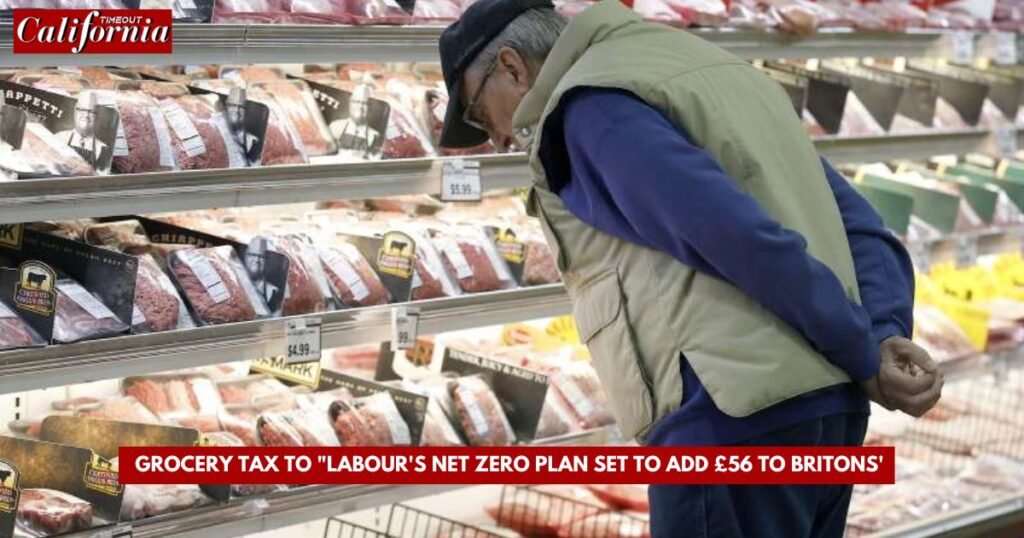A new “grocery tax” introduced under the Extended Producer Responsibility (EPR) scheme is projected to cost British households up to £1.4 billion annually, significantly increasing shopping bills.
The tax, part of the UK’s strategy to achieve net zero targets, is expected to raise annual household grocery costs by as much as £56, according to government estimates.
What Is the Grocery Tax?
The EPR scheme, set to take effect on January 1, 2025, aims to shift the cost of packaging waste collection and disposal from local authorities to retailers and manufacturers. Businesses will be charged based on the type and quantity of packaging materials they use, with plastic packaging facing the highest fee at £485 per tonne.
While the policy seeks to promote waste reduction, it is already drawing criticism from various stakeholders who argue that the costs will ultimately be passed on to consumers, exacerbating the cost-of-living crisis.
- Anastasiia Smelova: The Beauty Queen on a Mission to Uplift, and Unite Women Worldwide
- HELL’ YA, a song of ELUSIVE THUGS serves as a perfect example of Music with Meaning
- Egyptian-American filmmaker Peter Takla is set to Release his new film, “40 Days,” in theatres on May 30
- Autumn Brockman’s “ARock” Empowers the Beauty Industry
- Miss Universe Guyana organization appoints new Assistant Director Ivonn Novikova

How Much Will It Cost Consumers?
Government projections show that the EPR scheme will impact household shopping bills as follows:
- Low Scenario: An additional £28 annually per household.
- Central Scenario: A rise of £48 annually.
- High Scenario: Up to £56 annually.
The British Retail Consortium suggests these estimates may be too low, arguing that the actual cost for businesses could exceed £2 billion, far more than the £1.4 billion predicted by the Government. With an estimated 85-100% of these costs passed on to consumers, the financial burden on families could be substantial.
Critics of the EPR scheme have labeled it a “stealth tax” that adds to consumer costs and inflation. Lord McKinlay, chair of the Net Zero Scrutiny Committee, condemned the tax, calling it “another net zero tax that heaps unnecessary costs on consumers and businesses.”
Lord Frost echoed these sentiments, criticizing Labour’s approach to green politics. “This policy boosts inflation and pushes up food costs for every family,” he said, arguing that it undermines economic growth.
Impact on Businesses
Retailers and manufacturers are also expressing concerns over the administrative and financial burden imposed by the new legislation. The policy mandates that companies manage and report their packaging waste, creating additional bureaucracy.
Charges for packaging materials are tiered, with paper or board packaging incurring the lowest fee of £215 per tonne, while alternative materials like bamboo or hemp are charged at £280 per tonne. The varying costs aim to incentivize the use of eco-friendly packaging, but critics argue the scheme is poorly timed, given the current economic climate.

Will Councils Reduce Taxes?
One of the most contentious aspects of the EPR scheme is the lack of clarity over council tax reductions. Since the cost of waste management will shift from local authorities to businesses, residents are questioning whether their taxes will decrease.
So far, there has been no indication from the Government that council taxes will be lowered, further fueling public frustration.
The Bigger Picture
While the EPR scheme aligns with the UK’s net zero strategy, its impact on household finances and inflation raises important questions. The policy is projected to contribute a 0.07% increase in inflation, adding pressure to already strained budgets.
Critics argue that the Government must strike a balance between environmental goals and economic stability. Without careful planning and public engagement, policies like the grocery tax risk alienating consumers and businesses alike.


